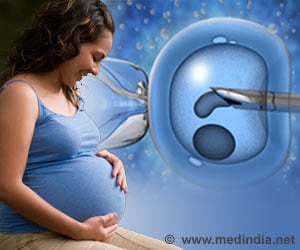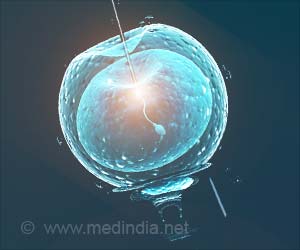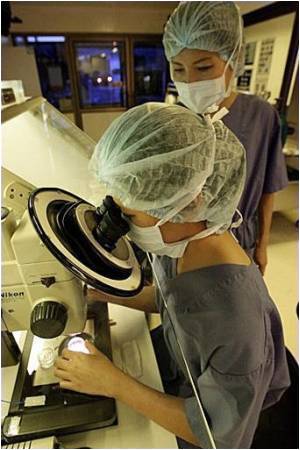Highlights:
- Infants conceived through IVF can have a higher risk of death than infants conceived naturally
- This occurs due to IVF-induced premature babies having health complications
- Mortality risk can be reduced by carefully monitoring the health of the babies in the first few weeks of life
The study, published in the journal Fertility and Sterility, was led by Dr. Kenny A. Rodriguez-Wallberg, MD, PhD, who is an Associate Professor of Reproductive Oncology in the Department of Oncology-Pathology at Karolinska Institute, Solna, Sweden. She is also a Senior Consultant in Reproductive Medicine and Head of the Program for Fertility Preservation at Karolinska Hospital, Stockholm, Sweden.
The senior lead author of the paper was Dr. Anastasia Nyman Iliadou, PhD, who is an Associate Professor in the Department of Medical Epidemiology and Biostatistics at Karolinska Institute, Solna, Sweden.
“It is important to note that even if we on a group level can see a somewhat increased risk of infant mortality after IVF, the absolute risk for each individual is still very small,” says Rodriguez-Wallberg. “It is also reassuring to know that there is no increased risk of mortality in this group of children beyond the first year of life.”
Read More..
In Vitro Fertilization (IVF) & its Complications
IVF is a procedure in which the egg (ovum) is fertilized by the sperm outside the woman’s body, in a test-tube (in vitro). For this reason, the baby is commonly referred to as a test-tube baby. These days, women are increasingly going for assisted reproductive procedures, such as IVF.Usually, these procedures are safe and produce healthy babies. However, IVF pregnancies can also be risky as these are associated with birth complications. For example, the babies are often born premature, having low birth weight, as well as birth defects. Importantly, these complications have been thought to be associated with twin-births, which is quite common in women undergoing IVF procedures.
Besides IVF, other assisted reproductive procedures include frozen embryo transfer, fresh embryo transfer and intracytoplasmic sperm injection (ICSI), among others.
Some of the leading causes of infant mortality arising from assisted reproductive procedures include the following:
- Infections
- Congenital lung defects
- Respiratory distress
- Neonatal hemorrhage
Key Features of the Study
The key features of the study are briefly highlighted below:- Singleton (born singly) infants were exclusively included in the study
- Mortality of infants conceived through assisted reproductive procedures was compared with infants conceived naturally
- Data on 2.8 million Swedish infants born over a period of 30 years were analyzed
- Of the 2.8 million infants, 43,500 were conceived through assisted reproductive procedures
- In the analysis, confounding factors such as age and prior infertility issues of the mothers were taken into consideration
Key Findings of the Study
- 7,236 infants died before attaining one year of age
- Of the 7,236 infants, 114 were conceived through assisted reproductive procedures
- 45 percent higher mortality risk at one year of age was present in infants conceived through IVF, compared to infants conceived naturally
- The level of mortality risk varied with the type of assisted reproductive procedure used and the days elapsed from the time of birth
- The mortality risk slowly decreased after the first few weeks after birth
- Infants conceived through frozen embryo transfer had 2-fold higher mortality risk at one-week post-birth, compared to infants conceived naturally
- After one week, the mortality risk reduced to that of naturally conceived infants
- Infants conceived through fresh embryo transfer or intracytoplasmic sperm injection (ICSI), didn’t exhibit a higher mortality risk than naturally conceived infants
- Mortality risk of infants conceived through fresh embryo transfer or ICSI didn’t depend on the time elapsed since birth
Interpretation of the Study Findings
The study findings can be explained by the following two perspectives:- More IVF-conceived infants are born prematurely than naturally conceived infants, which could influence mortality risk
- Underlying infertility in the mothers could increase the risk of complications
Concluding Remarks
“Our results indicate that the kind of assisted reproductive technique used may make a difference, and therefore it is important to further investigate what causes or underlying mechanisms are behind the risks,” says Iliadou. “They also show the need for extra attention and care of children conceived with IVF, especially during the first week of life.”Funding Source
The study was funded by the Swedish Research Council, the EU-FP7 Health Program, the Stockholm County Council, the Strategic Research Program in Epidemiology at Karolinska Institute, and Karolinska University Hospital.Reference:
- IVF-Conceived Children Have Somewhat Higher Mortality Risk in their First Weeks of Life - (https://news.ki.se/ivf-conceived-children-have-somewhat-higher-mortality-risk-in-their-first-weeks-of-life?_ga=2.198838694.804727351.1582022796-1449775094.1582022796)
Source-Medindia















